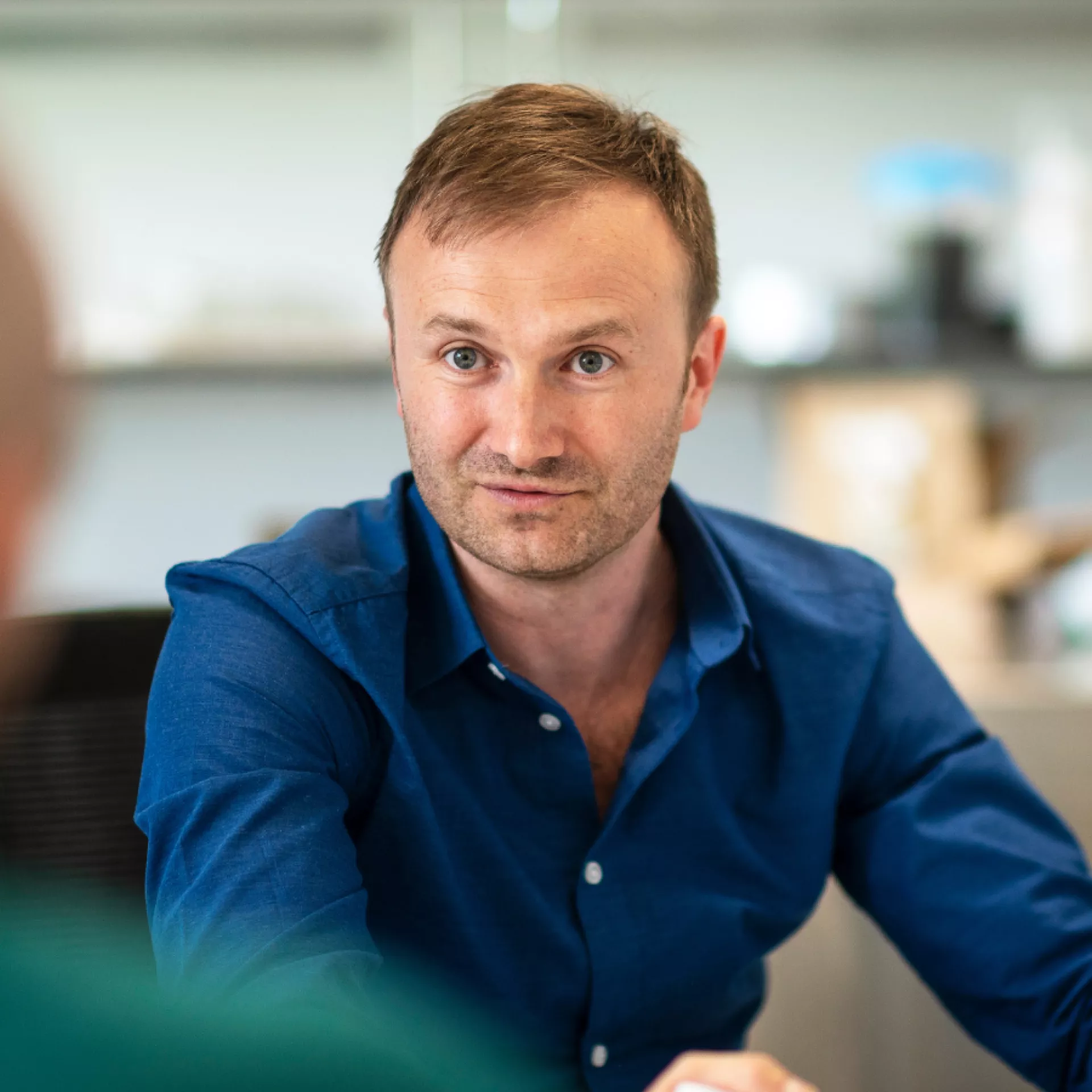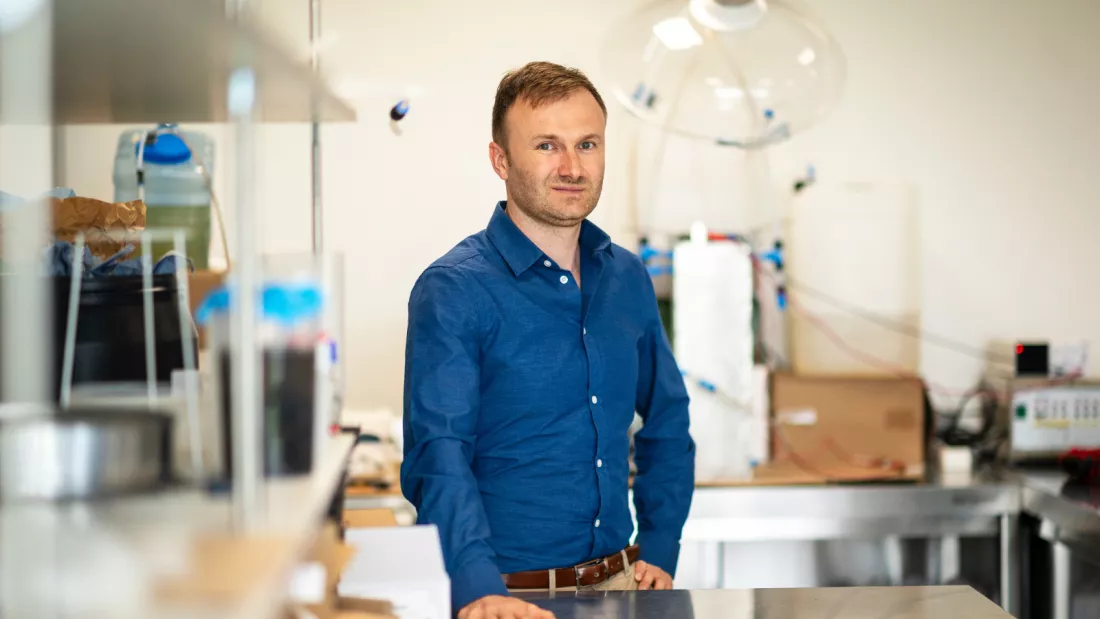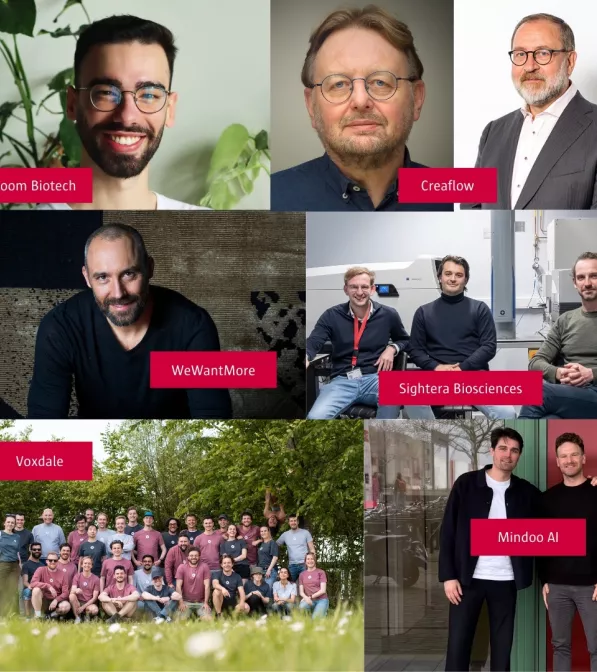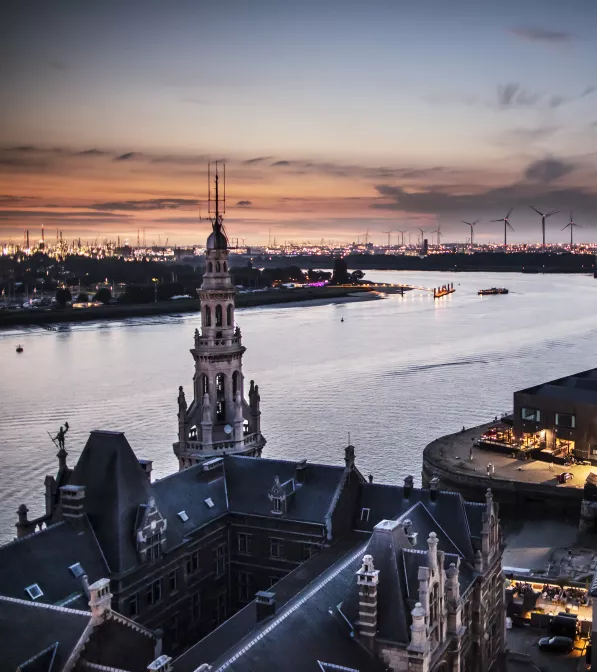From waste to green energy: is this the water treatment of the future?

- Home
- News & events
- From waste to green energy: is this the water treatment of the future?
BlueChem, the first sustainable chemistry incubator in Belgium, opened its doors in May 2020 at the eco-efficient Blue Gate Antwerp business park. This unique public-private partnership brings together industry, academia and government to help start-ups and growth companies grow on an industrial scale. Located in the heart of one of the world's largest chemical clusters, close to the port of Antwerp, BlueChem is fostering promising innovations that will help shape the chemistry of the future. Like those of Aquature Technologies, the British start-up that settled there in early 2022.
Wastewater as an source of energy
Aquature Technologies has developed a revolutionary water treatment technology: a fully circular and carbon-negative way of turning wastewater into green fuel and clean water. “Traditional water treatment methods are based on technology that is now obsolete," says co-founder Steffen Georg, a German biochemist who has spent most of his career developing microbial electrochemical processes for treating organic waste.
"Removing pollutants from wastewater requires a lot of energy and releases greenhouse gases (wastewater treatment accounts for 3% of annual global greenhouse gas emissions, the equivalent of burning 200 million barrels of oil). Moreover, it does not generate any revenue, as wastewater is usually discharged, whereas it is the source of chemical energy that can be recovered and reused". Convinced that this could and should be done better, Georg set out to find a solution for extracting valuable materials from wastewater. Not alone, but with Egyptian chemist Ahmed Ismail and Björn Pietruschka, a chemical engineer with South African roots.
The trio's solution marked the beginning of their start-up company, Aquature, which turns industrial wastewater back into clean water. During the treatment process, Aquature generates chemical energy that is used to convert CO2 from the polluted water into hydrogen and other green chemicals, such as ethanol and acetic acid. "Our technology is carbon negative because the source of the chemicals is the biological waste in the water. No methane or CO2 is released in the process," explains co-founder Ahmed Ismail, whose 12 years of experience in the energy industry make him an expert in scaling up technologies in water treatment and energy industries.
Successful pilot project in brewery
The fully recirculating water treatment technology developed by Aquature is not new, but the British start-up is the first company to bring it to market. Georg, Ismail and Pietruschka could count on the support of the city, which immediately believed in the solution and provided financial support for their project. "We are extremely grateful to the city, thanks to which we were able to start a pilot project to prove that our solution really works," they say.
In this pilot project, a brewery supplies its process streams and wastewater to Aquature's off-site modular plant. “On site, we built a treatment plant capable of handle 50m3 of wastewater per day. The brewery pays only €15 per m3 of treated wastewater and incurs no transport costs. We also produce hydrogen, acetic acid and caustic soda, which the brewery can reuse in the brewing process. In total, this results in savings of more than 30% for the customer, according to our latest estimations” explains Ismail. Added value of this process is the removal of phosphate impurities from the process stream - a major pain point for food producers for which no suitable solution has yet been found.
Water treatment as a service
With the pilot project proving that Aquature's technology works, it was time for the young company to take the next step. We are currently developing a marketable installation at BlueChem, which we hope to have ready by the end of 2026 and then market our solution from 2027 on," says Georg.
Like Flemish multinational Ekopak, Aquature plans to sell water treatment as a service, with companies paying per cubic metre. This will initially target the food, paper and agriculture industries; sectors that produce a lot of wastewater and are increasingly demanding lower energy costs and reduced CO2 emissions. "The sustainable chemicals we produce are needed by many companies for their production processes. We see a lot of interest in our solution. Companies are clearly looking for ways to operate more sustainably and cost-effectively. We are therefore convinced of the potential and the chances of success," says Georg.
For the founders, BlueChem is the perfect base to launch their unique water treatment technology internationally. "For a foreign startup in the circular economy, a unique ecosystem like BlueChem, with state-of-the-art labs and support services, is the dream environment to grow. We share knowledge and expertise with the other start-ups based here. In addition, the direct link to industry and international players via the proximity to the port of Antwerp is invaluable for the growth of our business," she says.
Making a difference
It was not written in the stars that the trio would set up a company to bring a ground-breaking technology to market. It began in Scotland, where Ismail was researching ways to produce carbon-free fuels. "That is how I came into contact with Steffen, who was working on his PhD in Wageningen at the time. Our first meeting went smoothly, and then things moved quickly. That same day, we founded a start-up company.
The young chemist had thought it all through, but his ambition to make a difference was the main driver. Even if the will is there, things always move much slower in a big company than in a small start-up, where the risk is also lower because there are fewer people involved," he says. "I also want to use my expertise to do something for the world. Climate was the only right choice for me, given the global issues, and with our innovative method of circular water treatment, I believe we can make a positive impact in the long term."
This article has been produced in collaboration with Bloovi.



